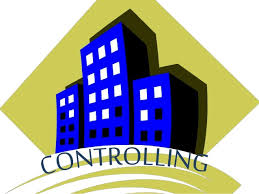CONTROLLING
- monitoring and evaluating activities
Control, or controlling, is one of the managerial functions like planning, organizing, staffing and directing. It is an important function because it helps to check the errors and to take the corrective action so that deviation from standards are minimized and stated goals of the organization are achieved in a desired manner.
According to modern concepts, control is a foreseeing action whereas earlier concept of control was used only when errors were detected. Control in management means setting standards, measuring actual performance and taking corrective action.
Characteristics
- Control is a continuous process
- Control is a management process
- Control is embedded in each level of organizational hierarchy
- Control is forward looking
- Control is closely linked with planning
- Control is a tool for achieving organizational activities
- Control is an end process
- Control compares actual performance with planned performance*
- Control point out the error in the execution process
- Control minimizes cost
- Control achieves the standard
- Control saves time
- Control helps management monitor performance
- compares performance against standards
Elements
The four basic elements in a control system:
- the characteristic or condition to be controlled
- the sensor
- the comparator
- the activator
Process
Step 1. Establishment of Standard.
Standards are the criteria against which actual performance will be measured. Standards are set in both quantitative and qualitative terms.
Step 2. Measurement of actual performance
Performance is measured in an objective and reliable manner. It should be checked in the same unit in which the standards are set.
Step 3. Comparing actual performance with standards.
Step 4. Analysis the cause of deviations.
Step 5. Taking corrective action.
Kinds
Control may be grouped according to three general classifications:
- the nature of the information flow designed into the system (open- or closed-loop control)
- the kind of components included in the design (man or machine control systems)
- the relationship of control to the decision process (organizational or operational control).
Importance of control
- Increasing size of business
- Motivation for efficient employees
- For complete discipline
- Helpful in future planning
- Aids efficiency
- Decrease in risk
- Helpful in coordination
- Helpful in decentralization
Robert J. Mockler presented a more comprehensive definition of managerial control:
https://en.wikipedia.org/wiki/Control_(management)






Comments
Post a Comment